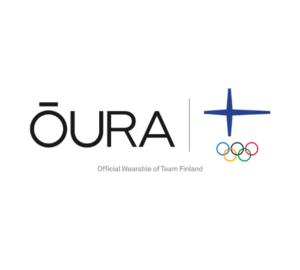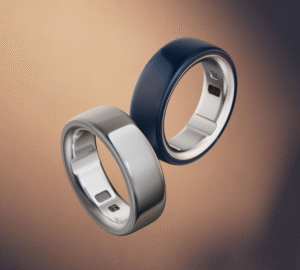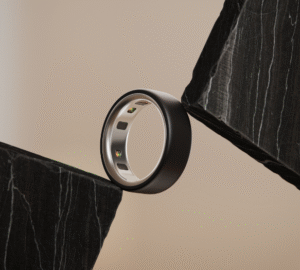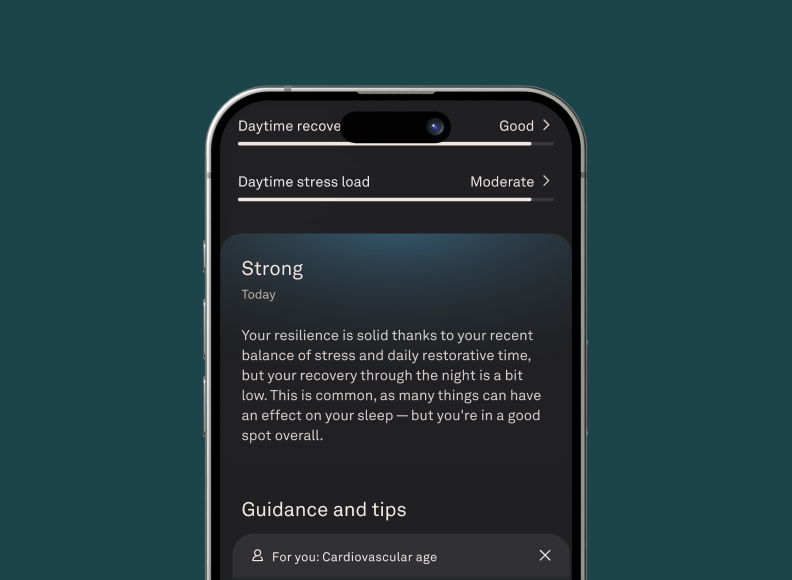No one’s life is completely stress-free — and that’s okay. At Oura, we’ve built a suite of stress-related features designed to empower members to better track, understand, and manage their stress — and now, how to recover from it long-term.
Your body’s ability to adapt to stress is known as resilience. Alongside Oura’s Daytime Stress feature, the Resilience feature helps you understand how you’re balancing your daily physiological stress levels with recovery.
“At Oura, our perspective of resilience emphasizes finding the optimal balance between experiencing stress and effectively recovering from it,” says Mari Karsikas, PhD, Head of Product Science.
Here, learn more about Oura’s Resilience feature from the science, product, and data experts who played pivotal roles in developing the feature.
READ MORE: Building Resilience: Improve Your Ability to Recover From Stress
Resilience: Oura’s Latest Stress Management Feature
Stress is to be expected. Oura helps you understand it — and respond to it.
“The Resilience feature is Oura’s latest milestone in our mission to provide comprehensive and meaningful stress management tools,” says Tuomas Romppainen, Senior Product Manager at Oura. “Building on Daytime Stress, Resilience will show members how they’re balancing stress and how to identify the best recovery management tools or habits.”
“The ability to track stress reactions is just one part of the story,” Romppainen explains. It’s just as important to know what to do with that information. That’s where the Resilience feature comes in.
“Resilience contextualizes your stress, helping you understand whether you’re successfully finding a balance between stress and recovery,” he says.
In the Oura App, you’ll receive a Resilience “level,” categorized as Exceptional, Strong, Solid, Adequate, or Limited. The algorithm uses key recovery and stress metrics to evaluate how you’re coping with stress, which we’ll dive into further below.
Just like all Oura features, Resilience went through rigorous testing and iterations to arrive at the final feature that we released to members.
“Building something new and innovative is always a challenge, and developing the Resilience feature was no different,” says Romppainen. “Oura’s science team has made groundbreaking discoveries in developing the required algorithms, and the design team tirelessly tested and fine-tuned the experience to make sure members enjoy the full benefits of the feature.”
How Does Oura Measure Resilience?
Oura measures your physiological resilience — how your body reacts and adapts to stress — rather than simply your mental resilience. This is the same as how Oura measures your stress on the Daytime Stress feature. Stress and resilience are both psychological and physiological markers – they show up in your biometric data, which Oura is tracking around the clock.
“Oura does not distinguish whether the body has been put to the test for a mental or physical reason,” Karsikas explains. “Oura only observes changes in your physiology, which can paint a picture of your stress resilience and allows Oura to quantify it.”
For instance, if your resilience is low, this might show up as an elevated heart rate, lower heart rate variability, poor sleep, and a low Recovery Index. What it means: you haven’t recovered enough, perhaps from a bad night’s sleep or a lack of restorative time during the day.
Oura’s Resilience Algorithm
 Oura determines your resilience by assessing your balance between stress and recovery over the past two weeks. It takes into account your day-to-day stress levels in the Daytime Stress feature as well as your recovery balance over time.
Oura determines your resilience by assessing your balance between stress and recovery over the past two weeks. It takes into account your day-to-day stress levels in the Daytime Stress feature as well as your recovery balance over time.
Three key contributors make up your Resilience level:
- Your Daytime Stress levels
- Your Daytime Recovery (also known as your daily Restorative Time)
- Your Nighttime Recovery (comprising your Sleep Score, resting heart rate, HRV balance, and Recovery Index)
Members can observe these factors on a daily basis alongside their Resilience level on the Resilience tab. “The purpose is to assist members in analyzing their data, so they can consider ways to enhance their resilience,” says Anna Iashina, Data Scientist at Oura.
Each contributor has a different score, ranging from Pay Attention to Optimal. If a contributor is classified as Pay Attention or Fair, it can help you pinpoint where you need to focus your efforts.
“For instance, you may see that your Nighttime Recovery is Fair – practicing better sleep hygiene, or going to bed aligned with your chronotype may help to bolster your resilience,” says Iashina.
She continues, “By monitoring and understanding how long-term physiological stress impacts Resilience, Oura members now possess the necessary tools to identify activities and behaviors that specifically trigger stress and recovery for them.”
LEARN MORE: Learn About Oura’s Compassionate Approach to Sleep
Understanding Your Resilience Level
“Resilience isn’t a static trait – it’s dynamic and evolving,” Karsikas says. That’s why it’s important to track your stress resilience over time.
On the Resilience tab, you can expect to see your resilience level change roughly two to three times a month, based on changes in your physiology and lifestyle habits.
Say, for example, you spent two weeks sleeping poorly, drinking alcohol, and avoiding exercise. You’re likely to see your resilience level drop. Conversely, say you spend two weeks getting high Sleep Scores, eating well, practicing meditation, and moving regularly. These healthy habits can result in an improvement in resilience.
Thus, the Resilience feature will help you understand if your habits and behaviors improve your resilience over time. While your day-to-day Readiness Score or Sleep Score may fluctuate, your Resilience level provides a longer-term picture of your body’s response.
What To Do With Your Resilience Level
“Depending on which contributor you choose to address, Oura provides tailored features and guidance,” says Iashina. For example:
- If your Daytime Stress levels are high: Try an in-app guided meditation (such as one from our partner Headspace), take a walk when you get an Inactivity alert, or take a nap, which are automatically detected and contribute to your Sleep Score.
- If your Daytime Recovery is low: Try to add in moments of stillness – reading a book or following an Unguided Session. Even a few minutes can help you rack up Restorative Time.
- If your Nighttime Recovery is low: You can look at which specific Sleep Contributor needs attention – if it’s sleep latency, try to follow Bedtime Guidance of when to start winding down.
“Some members may find it enjoyable to share and compare their ‘Resilience journeys’ on the Resilience map with their friends and family, particularly during shared experiences like taking a vacation together or navigating major life changes,” says Iashina. “Additionally, sharing your resilience data with significant others may foster a more empathetic understanding of each other’s perception of the same experience.”
| Member Tip: On the Oura App, you’ll find the Resilience tab at the bottom right of the home screen, replacing the Explore tab, which is moving to the menu on the upper left of the home screen.* Learn more about accessing the feature on the Support Center site. |
RELATED: Building Resilience: Improve Your Ability to Recover From Stress
*This feature is exclusive to Gen3 Oura members with an active membership.
About the Oura Experts
Anna Iashina, MSc, is a Data Scientist in Product Science who has been working at Oura for 2.5 years. She has a Bachelor’s degree in Computational Sociology and a Master’s degree in Applied Mathematics. Her primary interest at Oura is mental health and how Oura data can be used to promote mental well-being of our members. Her hobbies include drawing and specialty coffee.
Mari Karsikas, PhD, is the Head of Product Science at Oura. She has more than 20 years of experience in research and product development based on patient and health data of hospitals and health technology companies. She has a Doctor of Technology degree focused on intelligent systems and biosignal processing. In her free time, she loves kite skiing and arctic adventures in northern Finland, where she lives.
Tuomas Romppainen is a Senior Product Manager in Oura’s wellbeing squad, responsible for developing core wellbeing features at Oura. Holding degrees in both exercise physiology and medical engineering, Tuomas possesses a comprehensive grasp of the fundamental principles essential for crafting award-winning wearable products. He has vast experience from the wearable industry having worked with dozens of different wearable products and features for more than a decade. Tuomas’ passion is building meaningful and genuinely useful products that empower individuals on their journey to improved health.











